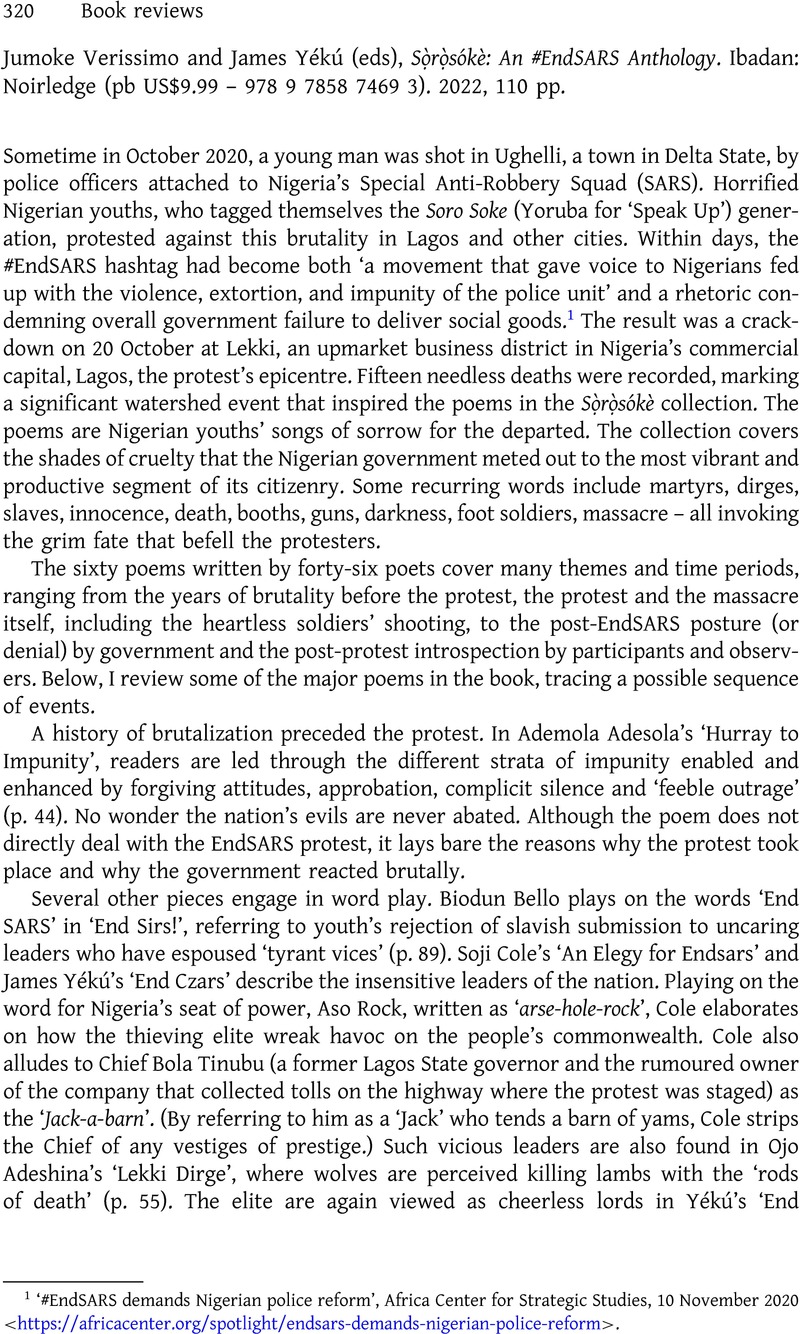No CrossRef data available.
Published online by Cambridge University Press: 04 May 2023

1 ‘#EndSARS demands Nigerian police reform’, Africa Center for Strategic Studies, 10 November 2020 <https://africacenter.org/spotlight/endsars-demands-nigerian-police-reform>.